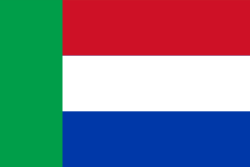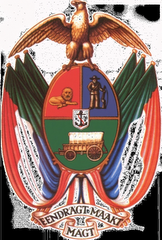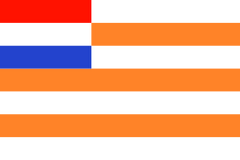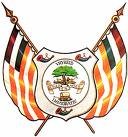US to set up permanent base in Botswana Sunday Standard Reporter 23 October 2007More than 1 500 American soldiers may be permanently based in Botswana from next year, should government go ahead with alleged plans to host America's recently created Africa Command (Africom).The Office of the President and the Ministry of Foreign Affairs this week could not confirm reports by Democracy and Governance that Botswana is alleged to have indicated interest to host Africom.Africom is aimed at stemming the assumed threat posed by swathes of Africa's “ungoverned” spaces, feared to be potential hide-outs and training fields for terrorists. According to the controversial 2007 “Failed States Index” recently released by the US-based Foreign Policy, Africa tops the list of failed states.The US budget for the Trans-Saharan Counter-terrorism partnership for 2007 is some $115 million (P1, 5 billion), while non military assistance has increased by 60 percent. Admiral Moeller, head of the Africom planning team hinted that the command will cost in the region of $50 million in the 2007 financial year. The super power's military investment is also expected to create a lot of jobs for locals.Despite the economic lures of Africom, a number of African countries, even America's strategic partners like South Africa, have indicated that they are not willing to host the command, citing concerns with the long term impact it would have on their sovereignty.According to the report by Democracy and Governance, “it is Washington's unilateral invasion of Iraq in 2003 and the Bush administration's strategy of pre-emptive strikes against its perceived threats which present liabilities which some African states are shy to bear. Countries considered by the US and its allies as pariahs such as Sudan and Zimbabwe shudder at the possibility of Africom being used to coordinate strikes against them ala Iraq.”Since Al Qaeda blew up American embassies in Kenya and Tanzania in 1998, killing 225 people, America has trained its heavy guns on the organization and its suspected local allies in the region. Some 1,5 00 US military and civilian personnel attached to the combined Joint Task Force-Horn of Africa (CJTF-HOA) have maintained a presence at Camp Lemonier, Djibouti. The command of the CJTF-HOA, currently under CENTCOM, will be transferred to Africom in Botswana in 2008, should Botswana agree to host the command.Deputy Permanent Secretary in the Ministry of Foreign Affairs and International Cooperation, Moostaq Moorad, would not confirm reports that Botswana has indicated that they are willing to host Africom, saying “This is more of a military cooperation issue than an international cooperation issue.” He referred all enquiries to the Office of the President.Presidential Affairs spokesperson, Dr Jeff Ramsay, also said he could not confirm the reports. He promised to come back to us next week.The Sunday Standard can, however, reveal that logistical difficulties that would come with Botswana hosting Africom were cleared in 2003 when the Ministry of Foreign Affairs and International Cooperation agreed to sign a non surrender pact with America under controversial circumstances.According to the write up by the Director of Democracy and Governance, Dr Peter Kagwanja, “ locating American soldiers permanently on foreign soil will depend on the host country's approval of a Status-of-Force Agreement (SOFA) - a legal document that the State Department negotiated to define the legal standing of American soldiers abroad.”Botswana has already signed this bilateral pact binding them not to surrender American military personnel to international tribunals, commonly known as Article 98. The agreement was signed on June 30, 2003 in Gaborone and entered into force on 28th September 2003.In its carrot and stick campaign, Washington withdrew military aid to all American allies that refused to sign the agreement, among them SADC countries like South Africa, Lesotho, Zambia , Malawi, Tanzania and Namibia.The Bush administration also issued a waiver, exempting Botswana from the military sanctions.The Botswana government was, however, under pressure from the local media and opposition political parties which felt that the country had sold out to America. In an attempt to stem the groundswell of hostile public opinion, Foreign Affairs Minister, Lt Gen Mompati Merafhe, issued a statement in July 2003 trying to justify Botswana's position.http://www.praag.org/mambo/index.php...050&Itemid=107
__________________
Wednesday, October 24, 2007
Fury at DNA pioneer's theory: Africans are less intelligent than Westerners
Fury at DNA pioneer's theory: Africans are less intelligent than Westerners
Celebrated scientist attacked for race comments: "All our social policies are based on the fact that their intelligence is the same as ours - whereas all the testing says not really"
By Cahal Milmo
Published: 17 October 2007
One of the world's most eminent scientists was embroiled in an extraordinary row last night after he claimed that black people were less intelligent than white people and the idea that "equal powers of reason" were shared across racial groups was a delusion.
James Watson, a Nobel Prize winner for his part in the unravelling of DNA who now runs one of America's leading scientific research institutions, drew widespread condemnation for comments he made ahead of his arrival in Britain today for a speaking tour at venues including the Science Museum in London.
The 79-year-old geneticist reopened the explosive debate about race and science in a newspaper interview in which he said Western policies towards African countries were wrongly based on an assumption that black people were as clever as their white counterparts when "testing" suggested the contrary. He claimed genes responsible for creating differences in human intelligence could be found within a decade.
The newly formed Equality and Human Rights Commission, successor to the Commission for Racial Equality, said it was studying Dr Watson's remarks " in full". Dr Watson told The Sunday Times that he was "inherently gloomy about the prospect of Africa" because "all our social policies are based on the fact that their intelligence is the same as ours – whereas all the testing says not really". He said there was a natural desire that all human beings should be equal but "people who have to deal with black employees find this not true".
His views are also reflected in a book published next week, in which he writes: "There is no firm reason to anticipate that the intellectual capacities of peoples geographically separated in their evolution should prove to have evolved identically. Our wanting to reserve equal powers of reason as some universal heritage of humanity will not be enough to make it so."
The furore echoes the controversy created in the 1990s by The Bell Curve, a book co-authored by the American political scientist Charles Murray, which suggested differences in IQ were genetic and discussed the implications of a racial divide in intelligence. The work was heavily criticised across the world, in particular by leading scientists who described it as a work of " scientific racism".
Dr Watson arrives in Britain today for a speaking tour to publicise his latest book, Avoid Boring People: Lessons from a Life in Science. Among his first engagements is a speech to an audience at the Science Museum organised by the Dana Centre, which held a discussion last night on the history of scientific racism.
Critics of Dr Watson said there should be a robust response to his views across the spheres of politics and science. Keith Vaz, the Labour chairman of the Home Affairs Select Committee, said: "It is sad to see a scientist of such achievement making such baseless, unscientific and extremely offensive comments. I am sure the scientific community will roundly reject what appear to be Dr Watson's personal prejudices.
"These comments serve as a reminder of the attitudes which can still exists at the highest professional levels."
The American scientist earned a place in the history of great scientific breakthroughs of the 20th century when he worked at the University of Cambridge in the 1950s and 1960s and formed part of the team which discovered the structure of DNA. He shared the 1962 Nobel Prize for medicine with his British colleague Francis Crick and New Zealand-born Maurice Wilkins.
But despite serving for 50 years as a director of the Cold Spring Harbor Laboratory on Long Island, considered a world leader in research into cancer and genetics, Dr Watson has frequently courted controversy with some of his views on politics, sexuality and race. The respected journal Science wrote in 1990: "To many in the scientific community, Watson has long been something of a wild man, and his colleagues tend to hold their collective breath whenever he veers from the script."
In 1997, he told a British newspaper that a woman should have the right to abort her unborn child if tests could determine it would be homosexual. He later insisted he was talking about a "hypothetical" choice which could never be applied. He has also suggested a link between skin colour and sex drive, positing the theory that black people have higher libidos, and argued in favour of genetic screening and engineering on the basis that " stupidity" could one day be cured. He has claimed that beauty could be genetically manufactured, saying: "People say it would be terrible if we made all girls pretty. I think it would great."
The Cold Spring Harbor Laboratory said yesterday that Dr Watson could not be contacted to comment on his remarks.
Steven Rose, a professor of biological sciences at the Open University and a founder member of the Society for Social Responsibility in Science, said: " This is Watson at his most scandalous. He has said similar things about women before but I have never heard him get into this racist terrain. If he knew the literature in the subject he would know he was out of his depth scientifically, quite apart from socially and politically."
Anti-racism campaigners called for Dr Watson's remarks to be looked at in the context of racial hatred laws. A spokesman for the 1990 Trust, a black human rights group, said: "It is astonishing that a man of such distinction should make comments that seem to perpetuate racism in this way. It amounts to fuelling bigotry and we would like it to be looked at for grounds of legal complaint."
Interesting? Click here to explore further
http://news.independent.co.uk/sci_tech/article3067222.ece
Celebrated scientist attacked for race comments: "All our social policies are based on the fact that their intelligence is the same as ours - whereas all the testing says not really"
By Cahal Milmo
Published: 17 October 2007
One of the world's most eminent scientists was embroiled in an extraordinary row last night after he claimed that black people were less intelligent than white people and the idea that "equal powers of reason" were shared across racial groups was a delusion.
James Watson, a Nobel Prize winner for his part in the unravelling of DNA who now runs one of America's leading scientific research institutions, drew widespread condemnation for comments he made ahead of his arrival in Britain today for a speaking tour at venues including the Science Museum in London.
The 79-year-old geneticist reopened the explosive debate about race and science in a newspaper interview in which he said Western policies towards African countries were wrongly based on an assumption that black people were as clever as their white counterparts when "testing" suggested the contrary. He claimed genes responsible for creating differences in human intelligence could be found within a decade.
The newly formed Equality and Human Rights Commission, successor to the Commission for Racial Equality, said it was studying Dr Watson's remarks " in full". Dr Watson told The Sunday Times that he was "inherently gloomy about the prospect of Africa" because "all our social policies are based on the fact that their intelligence is the same as ours – whereas all the testing says not really". He said there was a natural desire that all human beings should be equal but "people who have to deal with black employees find this not true".
His views are also reflected in a book published next week, in which he writes: "There is no firm reason to anticipate that the intellectual capacities of peoples geographically separated in their evolution should prove to have evolved identically. Our wanting to reserve equal powers of reason as some universal heritage of humanity will not be enough to make it so."
The furore echoes the controversy created in the 1990s by The Bell Curve, a book co-authored by the American political scientist Charles Murray, which suggested differences in IQ were genetic and discussed the implications of a racial divide in intelligence. The work was heavily criticised across the world, in particular by leading scientists who described it as a work of " scientific racism".
Dr Watson arrives in Britain today for a speaking tour to publicise his latest book, Avoid Boring People: Lessons from a Life in Science. Among his first engagements is a speech to an audience at the Science Museum organised by the Dana Centre, which held a discussion last night on the history of scientific racism.
Critics of Dr Watson said there should be a robust response to his views across the spheres of politics and science. Keith Vaz, the Labour chairman of the Home Affairs Select Committee, said: "It is sad to see a scientist of such achievement making such baseless, unscientific and extremely offensive comments. I am sure the scientific community will roundly reject what appear to be Dr Watson's personal prejudices.
"These comments serve as a reminder of the attitudes which can still exists at the highest professional levels."
The American scientist earned a place in the history of great scientific breakthroughs of the 20th century when he worked at the University of Cambridge in the 1950s and 1960s and formed part of the team which discovered the structure of DNA. He shared the 1962 Nobel Prize for medicine with his British colleague Francis Crick and New Zealand-born Maurice Wilkins.
But despite serving for 50 years as a director of the Cold Spring Harbor Laboratory on Long Island, considered a world leader in research into cancer and genetics, Dr Watson has frequently courted controversy with some of his views on politics, sexuality and race. The respected journal Science wrote in 1990: "To many in the scientific community, Watson has long been something of a wild man, and his colleagues tend to hold their collective breath whenever he veers from the script."
In 1997, he told a British newspaper that a woman should have the right to abort her unborn child if tests could determine it would be homosexual. He later insisted he was talking about a "hypothetical" choice which could never be applied. He has also suggested a link between skin colour and sex drive, positing the theory that black people have higher libidos, and argued in favour of genetic screening and engineering on the basis that " stupidity" could one day be cured. He has claimed that beauty could be genetically manufactured, saying: "People say it would be terrible if we made all girls pretty. I think it would great."
The Cold Spring Harbor Laboratory said yesterday that Dr Watson could not be contacted to comment on his remarks.
Steven Rose, a professor of biological sciences at the Open University and a founder member of the Society for Social Responsibility in Science, said: " This is Watson at his most scandalous. He has said similar things about women before but I have never heard him get into this racist terrain. If he knew the literature in the subject he would know he was out of his depth scientifically, quite apart from socially and politically."
Anti-racism campaigners called for Dr Watson's remarks to be looked at in the context of racial hatred laws. A spokesman for the 1990 Trust, a black human rights group, said: "It is astonishing that a man of such distinction should make comments that seem to perpetuate racism in this way. It amounts to fuelling bigotry and we would like it to be looked at for grounds of legal complaint."
Interesting? Click here to explore further
http://news.independent.co.uk/sci_tech/article3067222.ece
Tuesday, October 2, 2007
Selebi was probed, says NPA
http://www.mg.co.za/articlePage.aspx?articleid=320875&area=/breaking_news/breaking_news__national/
Mail & Guardian Online reporter and Sapa Johannesburg, South Africa
02 October 2007 05:49
DisplayDCAd('220x240','1','');
dcmaxversion = 9
dcminversion = 6
Do
On Error Resume Next
plugin = (IsObject(CreateObject("ShockwaveFlash.ShockwaveFlash." & dcmaxversion & "")))
If plugin = true Then Exit Do
dcmaxversion = dcmaxversion - 1
Loop While dcmaxversion >= dcminversion
Police National Commissioner Jackie Selebi has been investigated but no decision has been made on prosecuting him, the National Prosecuting Authority (NPA) said on Tuesday.It said there has been "considerable confusion" about the status of a probe involving Selebi."The NPA would like to clarify aspects relating to this issue," it said in a statement."An investigation relating to this matter has been conducted by the Directorate of Special Operations [the Scorpions]. In terms of the NPA Act, the national director of public prosecutions [NDPP] may review a decision to prosecute or not to prosecute."The acting NDPP [Mokotedi Mpshe] has decided to conduct a review of this matter."NPA spokesperson Tlali Tlali declined to indicate when this review will be completed. The statement said Mpshe would continue to be briefed regularly on all "significant matters" that were being investigated or prosecuted by the NPA. Responding to media reports of other cases under review, the NPA said: "In relation to other high profile matters which are the subject of media speculation today [Tuesday], the NPA would like to state that there is no such review under way."Decisions about prosecutions in outstanding matters will be taken in due course and in accordance with the law." There has been much speculation in the media around the reason for the suspension last week of National Director of Public Prosecutions Vusi Pikoli -- due to an "irretrievable breakdown" in the relationship between him and Justice and Constitutional Development Minister Brigitte Mabandla, according to the government.Some reports have suggested that Pikoli was dismissed after issuing an arrest warrant for Selebi based on the police chief's alleged ties to criminal syndicates.The Mail & Guardian has reported that Pikoli's failure to give his political superiors full details of the investigation into Selebi -- and possibly of Selebi's planned arrest -- led to his suspension, according to a range of official sources.The M&G first revealed Selebi's links to organised crime figures, and the Scorpions' investigation into these links, in May last year.The Democratic Alliance has said it will ask President Thabo Mbeki questions in Parliament relating to Pikoli's suspension.Question timeMbeki was caught off guard on Tuesday when asked questions at a media photo opportunity at the Union Buildings in Pretoria about the possible arrest of Selebi.Responding to questions from journalists by asking more questions, Mbeki queried whether it was a president's job to issue warrants of arrest, at which the journalist asking the question responded: "No.""So why do you ask it of this one?" Mbeki inquired.The short but lively impromptu question-and-answer session started with Mbeki being asked whether he had seen a warrant of arrest for Selebi. "You cannot be serious. Have you ever heard of a president issuing a warrant?" a bemused Mbeki asked.When he was pushed for an answer, he said the questions should be asked of prosecutors.Shortly afterwards, Minister in the Presidency Essop Pahad intervened and journalists were ushered out of a room where he was meeting the presidential working group on trade unions."You are out of order, stop it, you are out of order," Pahad said as officials escorted journalists out of the room.After being taken out of the room, journalists were told that a media briefing on the outcome of Mbeki's interaction with union leaders was cancelled. Selebi, in an interview with Talk Radio 702 this week, said there was a problem "when someone makes an allegation in order to investigate his own allegations".He told the radio station and was quoted in the Star as saying: "I am certain that I, Jackie Selebi, have never been involved in that kind of wrongdoing. I have never been involved in any kind of criminal activity. If I was I would have resigned a long time ago." -- Sapa
Related articles
Selebi probe under way
Rumours swirl over suspension
Pikoli: The Selebi connection
Mail & Guardian Online reporter and Sapa Johannesburg, South Africa
02 October 2007 05:49
DisplayDCAd('220x240','1','');
dcmaxversion = 9
dcminversion = 6
Do
On Error Resume Next
plugin = (IsObject(CreateObject("ShockwaveFlash.ShockwaveFlash." & dcmaxversion & "")))
If plugin = true Then Exit Do
dcmaxversion = dcmaxversion - 1
Loop While dcmaxversion >= dcminversion
Police National Commissioner Jackie Selebi has been investigated but no decision has been made on prosecuting him, the National Prosecuting Authority (NPA) said on Tuesday.It said there has been "considerable confusion" about the status of a probe involving Selebi."The NPA would like to clarify aspects relating to this issue," it said in a statement."An investigation relating to this matter has been conducted by the Directorate of Special Operations [the Scorpions]. In terms of the NPA Act, the national director of public prosecutions [NDPP] may review a decision to prosecute or not to prosecute."The acting NDPP [Mokotedi Mpshe] has decided to conduct a review of this matter."NPA spokesperson Tlali Tlali declined to indicate when this review will be completed. The statement said Mpshe would continue to be briefed regularly on all "significant matters" that were being investigated or prosecuted by the NPA. Responding to media reports of other cases under review, the NPA said: "In relation to other high profile matters which are the subject of media speculation today [Tuesday], the NPA would like to state that there is no such review under way."Decisions about prosecutions in outstanding matters will be taken in due course and in accordance with the law." There has been much speculation in the media around the reason for the suspension last week of National Director of Public Prosecutions Vusi Pikoli -- due to an "irretrievable breakdown" in the relationship between him and Justice and Constitutional Development Minister Brigitte Mabandla, according to the government.Some reports have suggested that Pikoli was dismissed after issuing an arrest warrant for Selebi based on the police chief's alleged ties to criminal syndicates.The Mail & Guardian has reported that Pikoli's failure to give his political superiors full details of the investigation into Selebi -- and possibly of Selebi's planned arrest -- led to his suspension, according to a range of official sources.The M&G first revealed Selebi's links to organised crime figures, and the Scorpions' investigation into these links, in May last year.The Democratic Alliance has said it will ask President Thabo Mbeki questions in Parliament relating to Pikoli's suspension.Question timeMbeki was caught off guard on Tuesday when asked questions at a media photo opportunity at the Union Buildings in Pretoria about the possible arrest of Selebi.Responding to questions from journalists by asking more questions, Mbeki queried whether it was a president's job to issue warrants of arrest, at which the journalist asking the question responded: "No.""So why do you ask it of this one?" Mbeki inquired.The short but lively impromptu question-and-answer session started with Mbeki being asked whether he had seen a warrant of arrest for Selebi. "You cannot be serious. Have you ever heard of a president issuing a warrant?" a bemused Mbeki asked.When he was pushed for an answer, he said the questions should be asked of prosecutors.Shortly afterwards, Minister in the Presidency Essop Pahad intervened and journalists were ushered out of a room where he was meeting the presidential working group on trade unions."You are out of order, stop it, you are out of order," Pahad said as officials escorted journalists out of the room.After being taken out of the room, journalists were told that a media briefing on the outcome of Mbeki's interaction with union leaders was cancelled. Selebi, in an interview with Talk Radio 702 this week, said there was a problem "when someone makes an allegation in order to investigate his own allegations".He told the radio station and was quoted in the Star as saying: "I am certain that I, Jackie Selebi, have never been involved in that kind of wrongdoing. I have never been involved in any kind of criminal activity. If I was I would have resigned a long time ago." -- Sapa
Related articles
Selebi probe under way
Rumours swirl over suspension
Pikoli: The Selebi connection
Subscribe to:
Posts (Atom)






